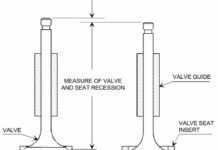 The FAA seems intent on challenging long-established norms in terms of staffing levels, work hours and overtime management in many of its facilities as it copes with the “retirement bubble” of controllers hired in 1981 when President Ronald Reagan fired thousands of striking controllers. According to the National Air Traffic Controllers Association (NATCA), the agency recently began ordering controllers to stay at their consoles beyond the two hours that the unions says is the “longest possible period that controllers should ever work to ensure safety and allow them adequate rest periods.” In a news release, NATCA says the agency is also instituting mandatory overtime to maintain minimum staffing at facilities and, even though traffic is increasing, recently reduced the minimum staffing levels at hundreds of facilities by as much as 26 percent. NATCA claims the reductions are reducing safety margins and increasing controller fatigue. The FAA did not respond to AVwebs request for comment.
The FAA seems intent on challenging long-established norms in terms of staffing levels, work hours and overtime management in many of its facilities as it copes with the “retirement bubble” of controllers hired in 1981 when President Ronald Reagan fired thousands of striking controllers. According to the National Air Traffic Controllers Association (NATCA), the agency recently began ordering controllers to stay at their consoles beyond the two hours that the unions says is the “longest possible period that controllers should ever work to ensure safety and allow them adequate rest periods.” In a news release, NATCA says the agency is also instituting mandatory overtime to maintain minimum staffing at facilities and, even though traffic is increasing, recently reduced the minimum staffing levels at hundreds of facilities by as much as 26 percent. NATCA claims the reductions are reducing safety margins and increasing controller fatigue. The FAA did not respond to AVwebs request for comment.
At Cleveland Center, the fourth busiest airport in the U.S., 34 veteran controllers (roughly 8 percent of the facility’s workforce) recently retired and there are more making plans. NATCA President Pat Forrey worked at Cleveland for 23 years before taking over the union job, and he said in the news release that the FAA is simply “staffing to budget” without regard for the safety consequences. “With only 39 trainees in the building and a loss of 34 veteran, experienced controllers in recent months, with many more veterans set to retire in coming days, weeks and months, it is clear that the FAA is losing the battle, and it’s travelers who will have to pay the price in the form of increased delays and a reduced margin of safety,” Forrey said. The union claims the same issues affect smaller centers, and the effects can be fairly dramatic. It says the tower at Charleston, W. Va., was closed for 90 minutes last week due to staffing shortages. Aircraft continued to operate using standard non-tower airport procedures.


































